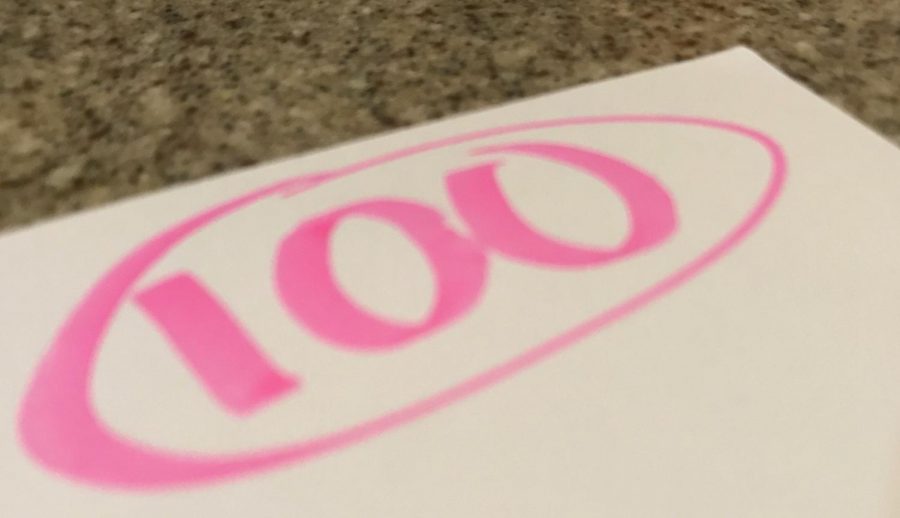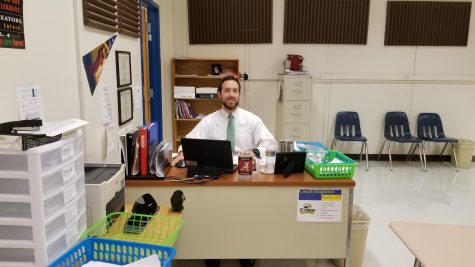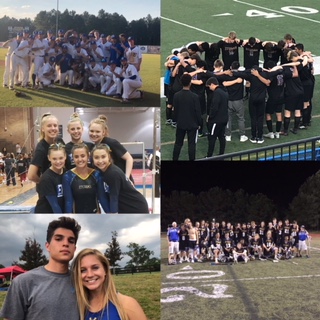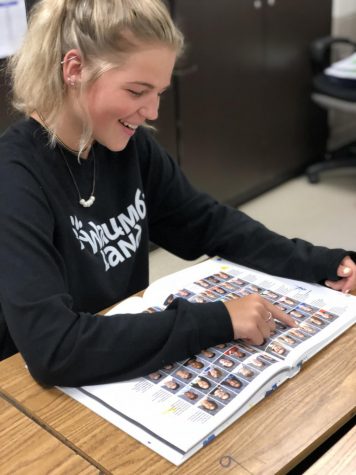Ten tips to get an A
Face it: we have all failed a test. It is no foreign concept. If I had just gotten two points higher, I could have had a C in this class. Maybe if I had just spent a little bit longer studying… These are some common thoughts that float around in our heads after a bad test or quiz. The fact is, dwelling on the past is useless. It is time for some studying changes. Do not panic, following these tips will be easy and simple!
- Review and repeat.
No, this does not mean vigorously writing something down one-hundred times. It simply means practice. Anywhere you find yourself with a few minutes of free time, pull out your phone or notes and review.
“Reviewing my notes helps me because I am able to visualize my notes in my head as I am taking a test or quiz,” Lauren Gower, senior, said.
- Find out how you learn.
If you have ever taken a learning style quiz, you were most likely classified as either a visual, auditory, or kinesthetic learner. This information can actually tell you a lot about how you need to study.
Visual: You need to see how something works. Try drawing pictures for vocabulary words and concepts. Your mind will be able to match the words up to a picture. If you are not artistic, find a video or picture online.
Auditory: You need to hear something to remember it. Call up a friend that you can talk about your notes with. If this will not work, repeat your notes out loud.
Kinesthetic: You need to do something physically. Speak with your hands to add motion to your learning.
- Change your scenery!
Sometimes changing your scenery can make you more alert for studying. If there is one place that you always study, try going somewhere else. You can even call up a friend and go to Starbucks!
“Changing scenery really helps me study because at a coffee shop you don’t have your couch or bed that you can go to. You are at a table focused on one thing,” Kylie Jones, freshman, said.
- Flash cards.
Whether you prefer online flashcards or old-fashioned paper, flash cards are effective for practice and memorization because you can test yourself on what you know. You can go to the following website for online flashcards: https://quizlet.com.
“Flash cards do help me learn. They are an amazing study strategy that I use for every test or quiz. When I use them I usually do vocab or key terms that I want to remember,” Lindsey Phillips, junior, said.
- Find a video online.
If you don’t understand what your teacher is saying, you may need to hear it from someone else. Try looking for a YouTube video that can help you! You could also use Khan Academy!
“My teacher makes YouTube videos and they help me understand the concept better. You can go and watch them again to help better understand what the teacher is saying,” Haley Theriault, freshman, said.
- Summarize or use bullet points.
Let’s face it. Once you take notes, you are most likely never to look at them again. Sound familiar? They are often long and hard to read. A simple way to handle that is to summarize your notes, so you can absorb the information and have an accessible way to study. However, some students prefer to use bullet points to organize their notes.
“I feel that when I summarize my notes it’s hard to find the one thing I need to find so I prefer using bullets or numbering them off. It also looks way more organized than summarized notes,” Rachel Conely, junior, said.
- Make mnemonics.
Have you ever heard teachers use Please Excuse My Dear Aunt Sally or PEMDAS? That is a mnemonic device. They may seem cheesy, but if you regularly use them, you will find yourself recalling them on tests and quizzes.
For vocabulary, think about the definition. Ask yourself: Does it have any of the same letters or sound like another word?
For lists, make an acronym! It can be as crazy or simple as you want. For example, you could say keep pond clean or froggy gets sick to remember kingdom, phylum, class, order, family, genus, species.
For concepts, make an analogy to real world!
“I use both mnemonics and analogies to help me study, but I find mnemonics, such as acronyms, grouping, rhymes, and imagery, to be the most helpful. Memorizing material in creative ways has always been a key factor in my study habits,” Gabby Sadowski, junior, said.
- Listen to music.
Music is known for helping you focus and lock information into your head. Many recommend music without words, but listen to whatever works best for you. However, if music distracts you, it may be best to work in silence.
“Some music helps with studying for a lot of people, such as instrumental music,” Josh Clendaniel, freshman, said.
- Teach.
By teaching or explaining the information you have learned, you are presenting it in a way that others can understand, whether you realize it or not. Your mind will summarize the information and mentally lay it out in an easy to understand way. Try it! Talk about what you are learning to your little brothers or sister, your parents, grandparents, friends, pets, or even just yourself in the mirror.
“Before every test in my classes, I make sure that I can thoroughly and clearly explain the material that I studied to either my family or friends,” Sadowski said.
- Get help.
If you are still struggling, get help. Find a tutor or a classmate that can help you work through any questions you have.
“I think having a topic explained again by someone other than my teacher definitely helps. It gives another side to what I’m learning and perhaps a new way of saying it is all I need,” Sydney Kahn, sophomore, said.
Studying can become stressful quickly if you are doing it the wrong way. Follow these tips for a much less painful way to get an A.

Hey! I’m Nicole. I’m the head of staff and an editor. Last year I was an exchange student in Spain, so you’ll notice a lot of my articles are about...






